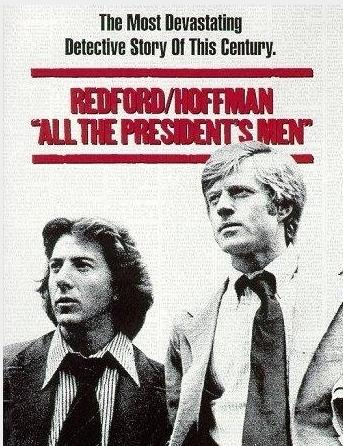NEW YORK (AP) ― When Robert Redford first called Bob Woodward to talk about a movie that eventually became “All the President’s Men,” the Washington Post reporter didn’t call back.
Redford’s call came early in Woodward and Carl Bernstein’s reporting on the cover-up that later toppled President Richard Nixon. Redford, who portrayed Woodward in the movie, said the writer later told him he didn’t believe it was the actor on the phone and was worried about being set up.
“I don’t know if it was that,” Woodward told The Associated Press. “I think we were busy and wondering why he might be calling.”
 |
“All The President’s Men.” (Warner Bros.) |
They were certainly busy, and a Discovery network documentary, “All the President’s Men Revisited” which airs Sunday at 8 p.m. ET, shows why. Ultimately the focus is far more on the Watergate case than the film about it.
“I didn’t want to make it too much about the movie,” Redford said. “That would be self-serving. The intention was to look back at that time and stay in that time, leaving any comparison with where journalism was or Congress was in that day compared to today to the audience to decide or think about.”
Politically, the contrast to today’s hyper-partisanship was most obvious when a House committee voted on articles of impeachment. The documentary lingers on the solemn roll call, making the point that members of Nixon’s own party had limits to how much they could stomach.
Redford hopes the Discovery show will bring the story of Watergate alive to young people who know about it only from books.
“It is so far removed that maybe the younger generation may not know that this is a piece of recent American history that may inform them,” he said.
Filmmakers also try to give a contemporary context by interviewing people like Jon Stewart, Rachel Maddow and Joe Scarborough along with many of the people who had been involved with the story at the time.
The film opens with a deeply weird moment that may stun people who didn’t live through the time. Nixon is shown before television cameras just before he was to go on the air and tell the nation he was resigning, and he made an uncomfortable joke to journalists about the cameras catching him picking his nose.
That example, along with film of Nixon’s perspiration-drenched speech before White House staff the morning of his resignation, is an important character study, Woodward said.








